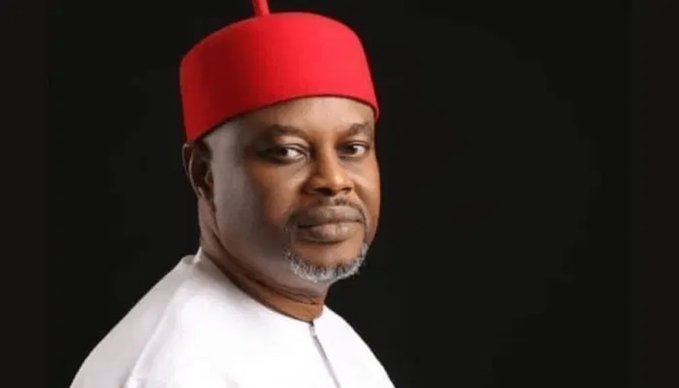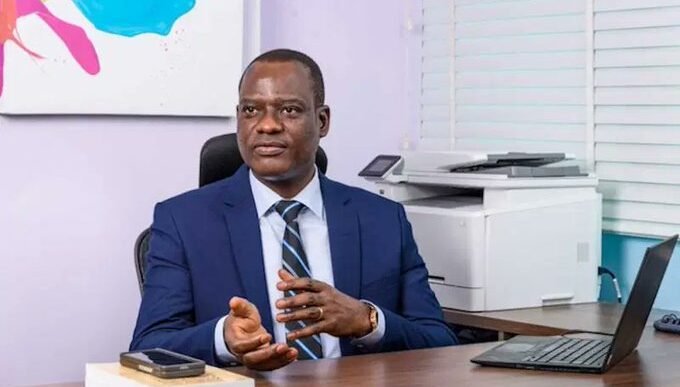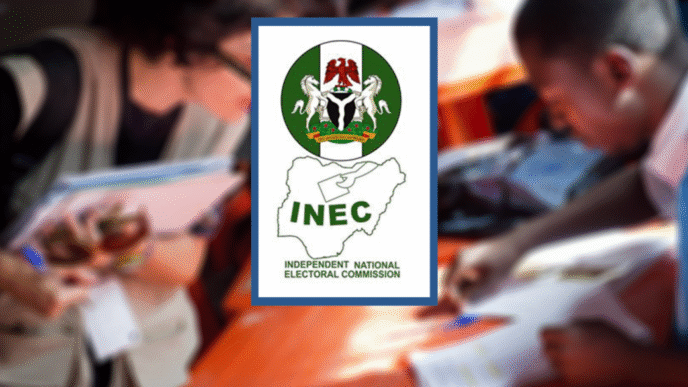Abuja, Nigeria — October 7, 2025
Nigeria’s Minister of Innovation, Science, and Technology, Geoffrey Uche Nnaji, has resigned from office following intense allegations that he forged his academic certificates. His resignation comes after a week of mounting pressure, investigative reports, and public scrutiny over his educational qualifications.
The Presidency confirmed the resignation on Tuesday, marking a major development in what has quickly become one of the most damaging political scandals of the Tinubu administration.
A Sudden Exit from Office
In a statement issued through the Special Adviser to the President on Information and Strategy, Bayo Onanuga, the Presidency announced that President Bola Ahmed Tinubu had accepted Nnaji’s resignation.
According to the statement, the President thanked the former minister for his service and wished him success in his future endeavors.
Mr. Nnaji’s resignation letter, sources said, was delivered early Tuesday morning and contained words of gratitude to the President. However, he maintained that he was the target of “malicious blackmail” and that the allegations were politically motivated.
Despite his defense, the weight of evidence and the scale of public outrage made his position untenable. His exit follows weeks of controversy surrounding the authenticity of the degree certificate he presented from the University of Nigeria, Nsukka (UNN), and his National Youth Service Corps (NYSC) discharge certificate.
How the Scandal Broke
The controversy erupted after Premium Times published an extensive investigation in early October 2025 that exposed inconsistencies in Nnaji’s academic records. The newspaper obtained documents and letters that reportedly contradicted the credentials the minister had filed with the Federal Government.
According to their report, Nnaji’s supposed degree certificate from the University of Nigeria did not match the school’s official records. The university’s registry was said to have confirmed that there was no record of his graduation in the year stated on his certificate.
Shortly after the report’s release, several media outlets independently confirmed that UNN had officially disowned the degree certificate being attributed to him. The NYSC certificate that he presented also came under scrutiny, with sources suggesting it may not have been legitimately issued.
The revelations immediately sparked nationwide outrage, prompting calls for his suspension and investigation. Civil society groups, political commentators, and opposition figures accused the minister of academic fraud and demanded that he face prosecution.
The Minister’s Defense
In his resignation letter and through intermediaries, Nnaji denied wrongdoing. He described the allegations as a coordinated smear campaign designed to destroy his reputation. He insisted that his certificates were authentic and blamed “political enemies” for orchestrating his downfall.
Nnaji, who hails from Enugu State, has long been a controversial political figure. Before his appointment to the federal cabinet, he had faced questions about his credentials during his confirmation hearing in the Senate. At the time, those concerns were dismissed as minor discrepancies.
However, the recent investigations brought new documentary evidence to light — including alleged correspondences between Nnaji and UNN officials — that cast doubt on his academic claims.
Despite his denials, analysts say his resignation effectively acknowledges the political and ethical damage caused by the scandal, even if not an admission of guilt.
Presidency Under Pressure
For President Tinubu, the resignation represents an effort to contain the fallout and demonstrate his administration’s commitment to accountability.
Sources within the Presidential Villa told reporters that the President was “deeply embarrassed” by the controversy and moved swiftly to accept Nnaji’s resignation to protect the administration’s integrity.
The government has faced criticism in recent months for the vetting process used to select ministers, with several appointees accused of discrepancies in their qualifications and financial records. The Nnaji scandal has reignited debates over the need for stricter background checks and verification before public officials are sworn in.
Public Reaction and Political Implications
The Nigerian public has reacted strongly to the development, flooding social media platforms with demands for prosecution. Many Nigerians expressed frustration that such allegations continue to plague top officials in government.
Opposition parties described Nnaji’s resignation as “a necessary first step” but called for a full investigation to determine whether he violated any laws.
Peter Obi, former presidential candidate and leader of the Labour Party, reportedly criticized the trend of “credential controversies” among political leaders, urging the government to enforce higher ethical standards.
Civil society groups, including the Coalition for Clean Governance (CCG) and the Nigeria Integrity Forum, have petitioned the Economic and Financial Crimes Commission (EFCC) and the Independent Corrupt Practices Commission (ICPC) to open an inquiry into Nnaji’s credentials and the process by which he was confirmed.
Legal and Institutional Implications
Under Nigerian law, forging academic or official documents is a serious criminal offence that can attract imprisonment. Section 363 of the Criminal Code defines forgery as the falsification of any document with intent to deceive, while Section 364 prescribes penalties of up to 14 years in prison.
If the allegations against Nnaji are confirmed by investigators, the case could progress from a political scandal to a full-blown criminal prosecution.
However, as of Tuesday evening, neither the EFCC nor the ICPC had announced any official investigation into the matter. Legal experts say the agencies are likely to review the evidence already in circulation before deciding whether to press charges.
Meanwhile, the University of Nigeria, Nsukka, is expected to issue an official statement clarifying its position and confirming whether the certificate in question is authentic.
Background: Who Is Geoffrey Uche Nnaji?
Geoffrey Nnaji was appointed Minister of Innovation, Science, and Technology in August 2023. A native of Enugu State, he previously served as an industrialist and public policy consultant before entering politics.
His tenure as minister was marked by several policy initiatives aimed at boosting indigenous research and promoting science-driven innovation. However, critics have accused him of poor project execution and weak oversight within key research institutions.
The certificate controversy has overshadowed his professional record and sparked discussions about how Nigeria’s political elite often escape scrutiny over their academic and personal histories.
The Road Ahead
With Nnaji’s resignation now official, attention turns to President Tinubu’s next move. The Ministry of Innovation, Science, and Technology plays a vital role in advancing Nigeria’s technology ecosystem, and the leadership vacuum will need to be filled quickly.
Insiders say the President is likely to appoint an acting minister in the interim while consultations continue for a permanent replacement.
More importantly, this episode is likely to reignite public demands for transparency in government appointments. Political observers warn that unless the administration introduces a robust verification process for all nominees, similar scandals may continue to erode public trust.
Conclusion
Geoffrey Uche Nnaji’s resignation marks another chapter in Nigeria’s long struggle with issues of integrity and accountability in public office. The allegations of certificate forgery may not yet have been tested in court, but the damage to his political career is already evident.
Whether or not the accusations lead to prosecution, the scandal underscores a deeper institutional failure — one in which political expediency often overrides merit and credibility.
For many Nigerians, the lesson is clear: leadership must begin with honesty. And for the Tinubu administration, the Nnaji case may become the defining test of its promise to uphold integrity in governance.














